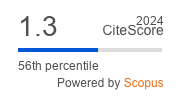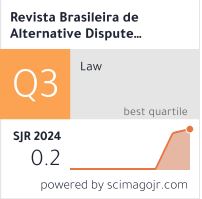ADR in Tax Disputes in Poland – The State of Play and Perspectives
Parole chiave:
Tax Disputes, Tax Procedure, Empirical Study, Consensual Resolution Of The CaseAbstract
This article examines alternative methods for resolving tax disputes in Poland. It discusses
the current limited legal regulation in place, the proposed draft regulation from 2019 by the Committee for Codification of the General Tax Law (which did not take effect), and the emergence of consensual resolution practices despite the absence of a comprehensive regulatory framework. Between June and September 2021, the author conducted a limited empirical study involving in-depth interviews with eight representatives of taxpayers who had firsthand experience with the consensual resolution of tax disputes. The findings shed light on the practice of tax alternative dispute resolution (ADR). The article puts forth two main arguments. First, it contends that practical negotiations between tax authorities and taxpayers do occur. Second, it suggests that rather than hindering normativization (the process of establishing legal regulations), this phenomenon underscores the need for it.
Riferimenti bibliografici
BROŻEK, B. The Legal Mind. A New Introduction to Legal Epistemology. Cambridge: Cambridge University Press, 2019.
BRZEZIŃSKI, B. Wstęp do nauki prawa podatkowego, Toruń: Dom Organizatora, 2001.
DRAGOS, D.C.; NEAMTU, B. (EDS). Alternative Dispute Resolution in European Administrative Law. Heidelberg–New York–Dordrecht–London: Springer, 2014.
DWORKIN, R. Taking Rights Seriously. Cambridge, Massachusetts: Harvard University Press, 1977.
ETEL, L.; POPŁAWSKI, M. The Assumptions of a New Tax Ordinance in Poland. Public Governance, Administration and Finances Law Review, v. 1, no. 1, p. 30-48, 2016.
FILIPCZYK, H. Alternative Methods of Resolving Tax Disputes in Poland (in:) Contemporary Issues in Tax Research, eds. MULLIGAN, E.; OATS, L., Vol. 3, Birmingham: Fiscal Publications, 2019, p. 87-120.
GALLIGAN, D. Discretionary Powers. A Legal Study of Official Discretion. Oxford: Oxford University Press, 1986.
GALLIGAN, D. Due Process and Fair Procedures. Oxford: Clarendon, 1996.
Informacja o działalności sądów administracyjnych w 2022 roku [Information on activities of administrative courts in 2022], Warsaw, March 2023, available at www.nsa.gov.pl, accessed 18 Jul 2023.
SELZNICK, P.; NONET, P. Law and Society in Transition: Toward Responsive Law. New York: Harper & Law, 1978.
SMALL, M.L.; MCCRORY CALARCO, J. Qualitative Literacy. Oakland: University of California Press, 2022.
SUWAJ, R. Mediation as a new form of settling administrative matters in Poland. Przegląd Ustawodawstwa Gospodarczego, v. LXXII, no. 12, p. 18-26, 2019.
THIBAUT, J.W.; WALKER, L. Procedural Justice: A Psychological Analysis. Hillsdale: L. Erlbaum Associates, 1975.
THURONYI, V; ESPEJO, I. How Can an Excessive Volume of Tax Disputes Be Dealt With?, How Can an Excessive Volume of Tax Disputes Be Dealt With? By IMF Legal Department, December 2013, accessed 18 Jul 2023.
VAN HOUT, D. Is Mediation the Panacea to the Profusion of Tax Disputes? World Tax Journal, v. 10, no. 1, p. 43-97, 2018.
ZAROSYLO, V.; KAPLYA, O.; MURAVIOV, K.; MYNIUK, D.; MYSIUK, O. Application of forms of alternative dispute resolution in Ukraine, Revista Brasileira de Alternative Dispute Resolution - RBADR, v. 4, n. 7, p. 231-240, 2022.
Downloads
Pubblicato
Fascicolo
Sezione
Licenza
Copyright (c) 2023 Revista Brasileira de Alternative Dispute Resolution - Brazilian Journal of Alternative Dispute Resolution - RBADR

TQuesto lavoro è fornito con la licenza Creative Commons Attribuzione 4.0 Internazionale.
No royalties or other compensation shall be due for the publication of the works.
The opinions expressed by the authors of the articles and reviews are their sole responsibility.









